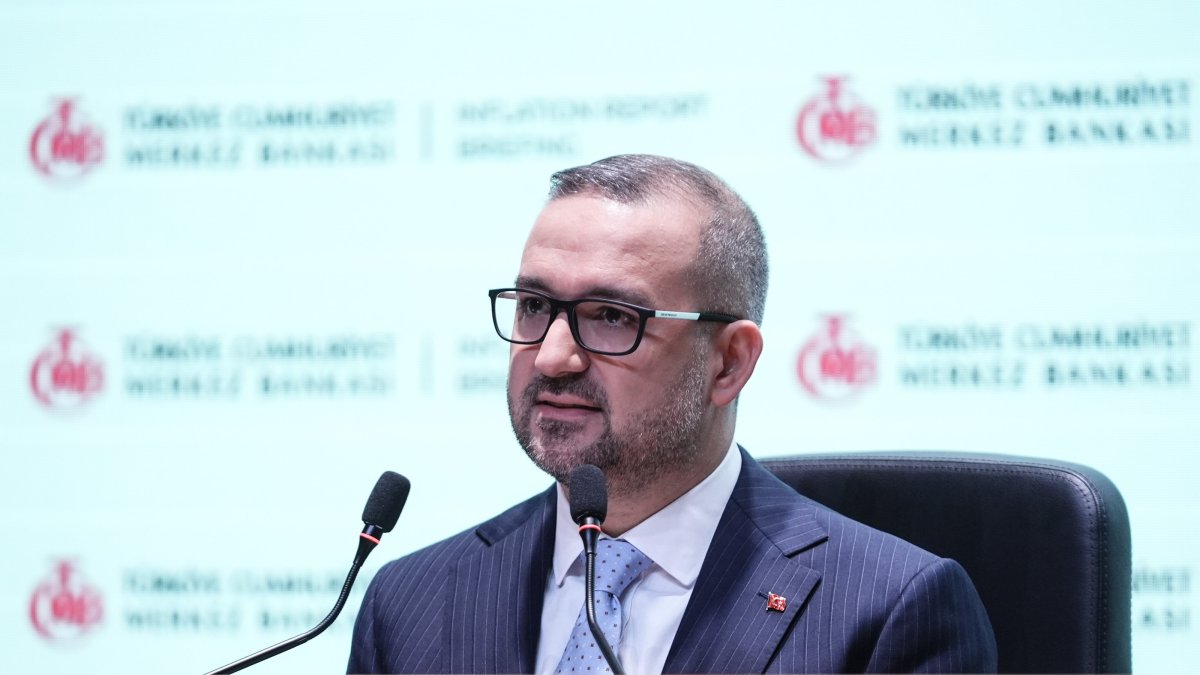The Turkish central bank conveyed readiness to tighten the monetary policy if inflation deviates significantly from its interim targets, affirming that price stability is a prerequisite for sustainable growth and increased social welfare.
The Central Bank of the Republic of Türkiye (CBRT) kept its interim target of 16% for end-2026 inflation on Friday despite recent price pressures, which it largely attributed to food prices but also elevated services prices, in areas such as education and rents.
The bank, which has been slowing the pace of interest rate cuts in recent months, also left unchanged its 13%-19% forecast range for the end of next year, based on its quarterly inflation report. However, the bank updated the forecast for this year slightly up to between 31% and 33%, while keeping the interim target the same compared to its previous report, at 24%.
The end-2027 interim target, meanwhile, remained at 9%.
Some analysts read the move to maintain next year’s forecast and target as a bold sign of the bank’s cautious approach and potential that the monetary stance would remain tight.
CBRT Governor Fatih Karahan said inflation was above the forecast range in the past two months, with food prices flagged as the main driver.
“The decline in underlying inflation and inflation expectations has been more limited than we envisaged, which has also led us to raise our inflation forecast for 2025,” Karahan said.
At its previous inflation report briefing in August, the bank announced it was separating the targets from its inflation forecast ranges, aiming to boost transparency and confidence.
Previously, the bank presented the target as the midpoint of the forecast range. Separating the goal and the range could give markets a clearer indication of where policy might be heading.
Prior to the inflation briefing, the last one this year and one ahead of the bank’s monetary policy committee (MPC) meeting in December, analysts expected the bank could include upward revisions to inflation forecasts.
Rate cuts slowed
Turkish inflation eased to 32.87% annually and 2.55% monthly in October, both below expectations.
However, the sudden rise in consumer prices in September after months of declines prompted the central bank to slow its rate-cutting cycle.
The bank slowed easing with a 100-basis-point cut in its policy rate to 39.5% at its latest policy-setting meeting on Oct. 23, flagging renewed inflation risks that pointed to a slowdown in the disinflation process.
At the previous meeting in September, it had already tapped the brakes with a 250-basis-point cut, having lowered the rate by 300 basis points in July as it resumed an easing cycle, which it briefly halted earlier in the year.
Karahan, as part of his presentation, also highlighted that global uncertainty “still remains above historical averages.”
In the Q&A part of the briefing, he also dismissed the view that disinflation was brought to a halt due to an uptick in September, explaining that it only decelerated. He also suggested they are closely following market dynamics, including geopolitical fluctuations, petrol prices and if required, they would update the impacts of these in their assumptions.
“Domestically, although demand conditions are aligned with disinflationary levels, the pace of disinflation has decelerated over the past two months. Nevertheless, the CBRT emphasizes its determination to sustain the downward trend in core inflation through tight policy,” said an economist, Banu Kıvcı Tokalı.
The next MPC meeting is on Dec. 11.

The Daily Sabah Newsletter
Keep up to date with what’s happening in Turkey,
it’s region and the world.
SIGN ME UP
You can unsubscribe at any time. By signing up you are agreeing to our Terms of Use and Privacy Policy.
This site is protected by reCAPTCHA and the Google Privacy Policy and Terms of Service apply.

